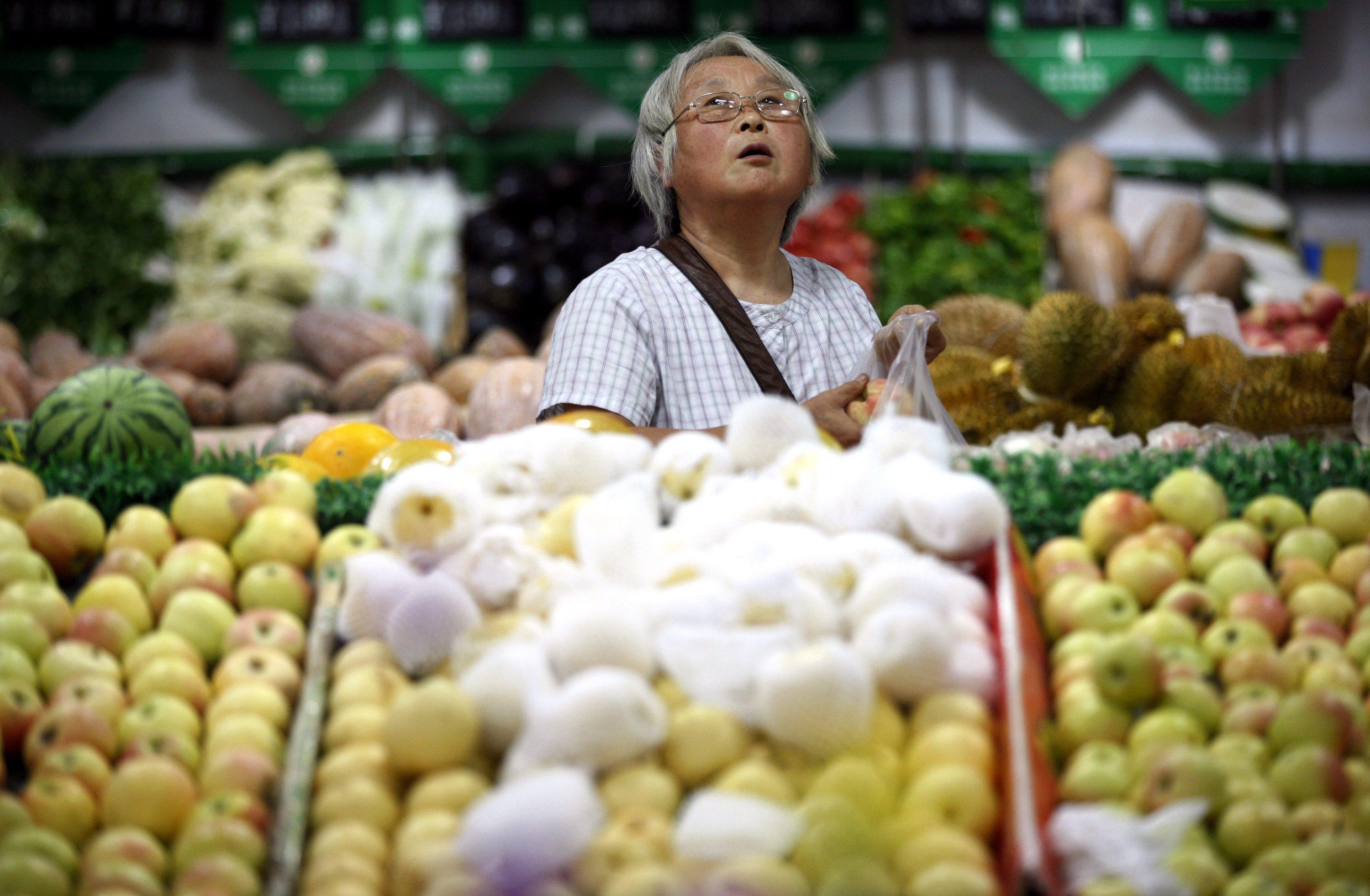China August Inflation Cools More Than Expected, Gives Room
Bareksa • 11 Sep 2014

A customer looks up at price tags as she selects fruits at a supermarket in Ma'anshan, Anhui province - (REUTERS/Stringer)
Some economists say more stimulus steps needed to meet China growth target
Bareksa.com - China's consumer inflation cooled more than expected in August, further evidence after a fall in imports that the economy is losing momentum, but giving policymakers room for more stimulus measures if needed.
The consumer price index (CPI) rose 2.0 percent in August from a year earlier, the National Bureau of Statistics said on Thursday, missing market expectations for 2.2 percent and down from 2.3 percent in July.
The producer price index fell 1.2 percent, its 30th consecutive monthly decline, as weak economic conditions continue to rob Chinese companies of pricing power. The market had expected a 1.1 percent decline after a drop of 0.9 percent in July.
Highlighting faltering demand, China's second-biggest steelmaker, Baoshan Iron and Steel 600019.SS (Baosteel), said on Wednesday it will cut its prices for October delivery, which is normally a peak steel consumption period.
"As China's inflation continues to trend down, we believe that the deflation risk is rising and China needs to further ease monetary policy," said Hao Zhou, economist at ANZ in Hong Kong.
"More importantly, the soft PPI inflation indicates that the real interest rates facing the corporates have even picked up amid economic slowdown, which will likely squeeze their profit margins over time.
Asian share markets were up slightly after the inflation data while the Australian dollar rose.
The CPI rose 0.2 percent in August from the previous month, half as much as economists had expected.
With consumer inflation well below the official ceiling of 3.5 percent, the government and the central bank have scope to loosen policies further to bolster the faltering economy if needed.
But a flare-up in price pressures and debt levels following a massive stimulus programme during the global financial crisis remains fresh in policymakers' minds, so any measures now may continue to be tightly focused on the most vulnerable sectors of the economy.
Trade data on Monday showed China's import growth unexpectedly fell for the second consecutive month in August, posting its worst performance in over a year.
That fuelled speculation about whether authorities should loosen policy further in a bid to revive cooling demand, which is being compounded by a weakening housing market.
Still, Premier Li Keqiang said on Tuesday that China cannot rely on loose credit to lift its economy and it would continue to make only "targeted adjustments". He said the economy can still grow by around 7.5 percent this year as earlier forecast by the government.
Other economists also said more support more be needed to meet that growth target.
"There should be more moderate monetary easing, especially after money-supply growth fell to a five-month low in Aug and below the full-year target of 13 percent," wrote Oliver Barron of NSBO China Policy in a research note, reacting to Li's comments.
"Measures should include expanded quota for re-lending and re-discounting, or more targeted RRR cuts."
Since April, authorities have publicly loosened policy in modest steps by accelerating some infrastructure works, injecting cash into banks to increase lending and relaxing controls in the housing market to boost property sales.
* Aug CPI +2.0 pct yr/yr vs f'cast +2.2 pct
* Aug PPI -1.2 pct yr/yr vs f'cast -1.1 pct
* Aug CPI +0.2 pct from July, vs f'cast +0.4 pct